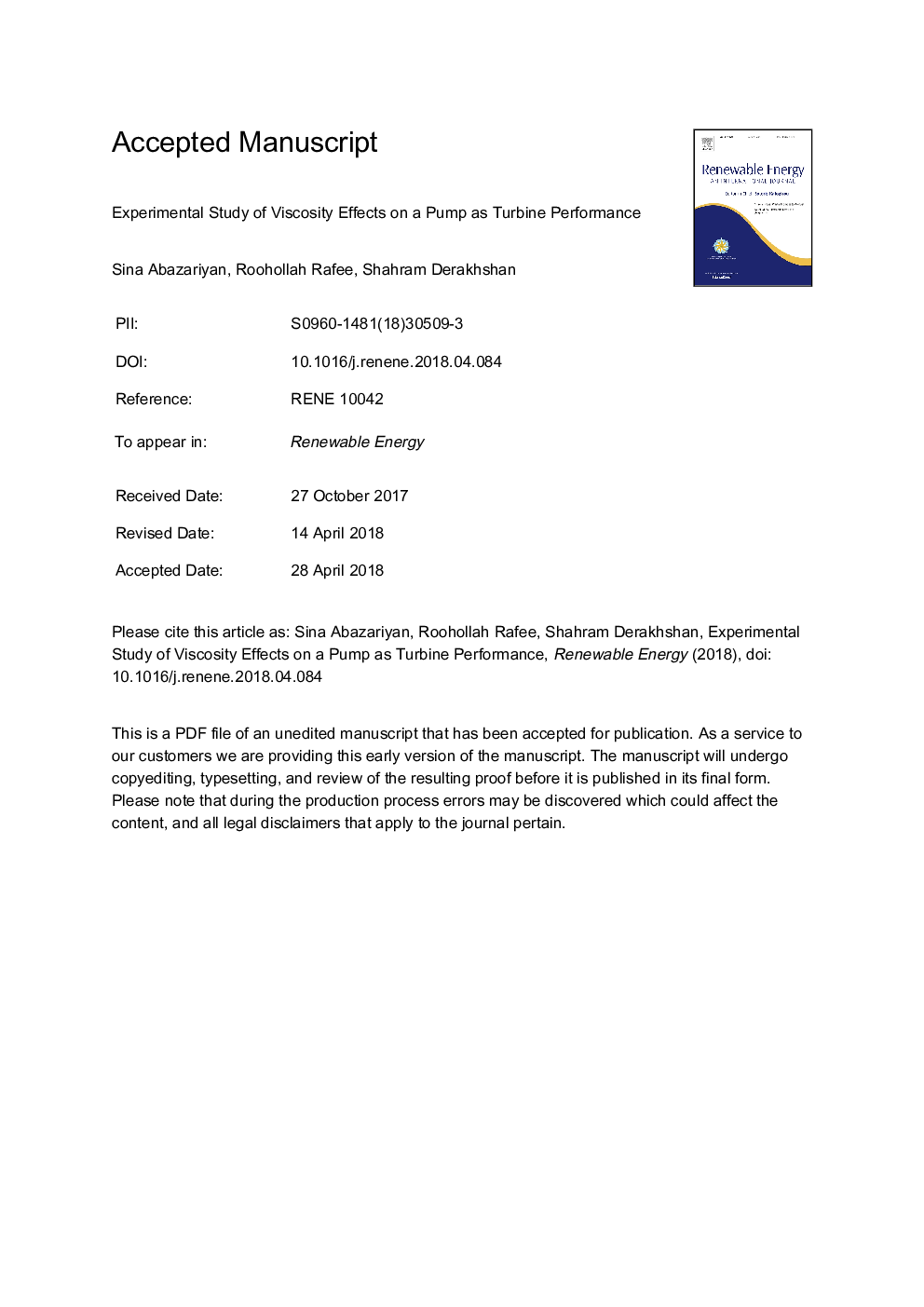| Article ID | Journal | Published Year | Pages | File Type |
|---|---|---|---|---|
| 6764126 | Renewable Energy | 2018 | 25 Pages |
Abstract
An experimental study is carried out to find the effects of viscosity on the performance of a pump as turbine (PAT) system. A pump is tested in an established test rig for five kinds of fluids with different viscosities by the solution of Water-Glycerin with various volume fractions. By analyzing the results of performance tests, two opposite effects are observed. In the part-load region, increasing the viscosity leads to an increase in hydraulic friction losses in the impeller, which decreases the PAT efficiency. On the other hand, at the best efficiency point (BEP) and overload region, by increasing the viscosity, the lubrication effects cause a reduction in the mechanical losses. This effect improves the machine's efficiency. However, at the higher rotational speeds, the hydraulic losses are dominated. Dimensionless correlations for the pure water are compared with other available data in the literature. Three viscosity correction factors for the head, efficiency, and power are obtained, which can be beneficial for selection of a PAT system with the tested viscosity values. Finally, based on the obtained results, a correlation is proposed for calculation of the efficiency as a function of flow coefficient and Reynolds number.
Related Topics
Physical Sciences and Engineering
Energy
Renewable Energy, Sustainability and the Environment
Authors
Sina Abazariyan, Roohollah Rafee, Shahram Derakhshan,
